Which TV Episode Do You Always Skip on a Rewatch?
There’s always one you can't face revisiting.
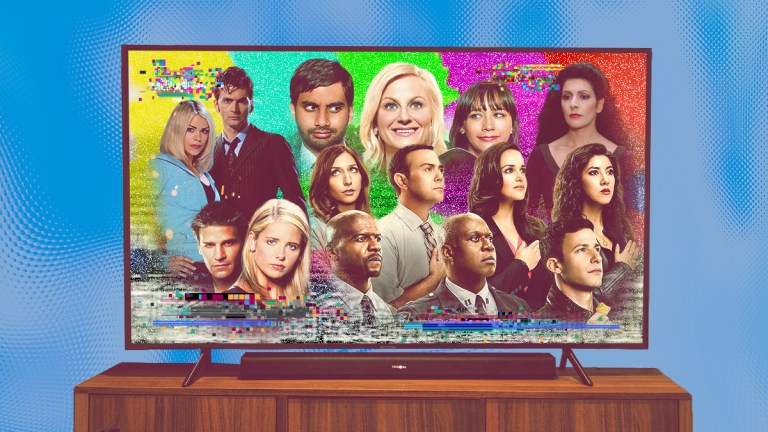
Next episode? Don’t mind if I do.
The pleasure of rewatching a TV show is in shedding the responsibility of choice and submitting to the lazy river of an old favorite. Bob along its waters, allowing the current to pull you through the awkward early episodes, scandalous cast departures, writers’ strike half-season, all the way to the end – and then, why not? Start all over again. No pressure to choose. No burden of achievement. Just familiarity and comfort. Bob. Bob. Bob.
Until! An episode on the horizon threatens to interrupt your flow. If you just let it happen, you’d be pulled out of your reverie for a full 22 or – worse – 48 minutes. Perhaps it’s bad, or uncomfortable, or has unpleasant associations, or simply makes you feel too much. Either way, you skip it every time. Here are our writers’ nominations.
Brooklyn Nine-Nine season five, episode 19, “Bachelor/ette Party”
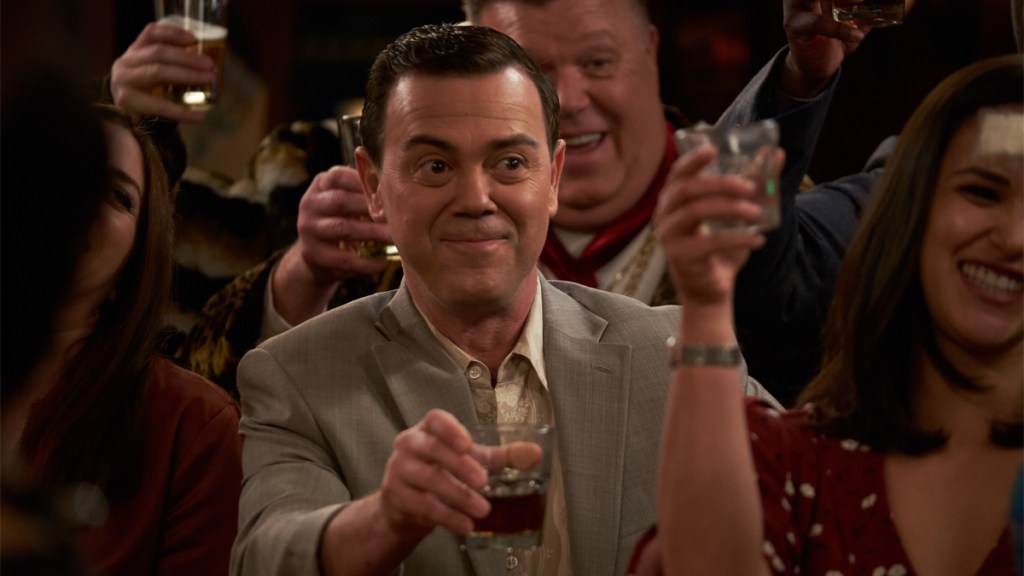
I love Brooklyn 99. Even when it’s not wall-to-wall hilarious, it’s always incredibly good natured, and it’s just great fun spending time with this bunch of weirdos. It even makes being a cop look kinda cool. But the Bachelor/ette party episode, while maintaining the show’s general level of quality, is just… a bit sad.
Jake and Amy are finally getting married. Amy and her girl mates are embarking on a bachelorette adventure to make up for her generally sheltered existence. It works out well, Amy has her moment and Gina actually says something nice. If I could watch this bit on its own, I would.
Meanwhile, Holt’s swapped his captain’s hat for a Kangol hat, Terry’s got permission to get wasted and lovely Charles Boyle has been working on Jake’s do for ten years. It’s a highly complex scavenger hunt lasting six hours, which revolves around Charles getting kidnapped. Only the lads don’t want to solve a puzzle, they want steak and shots, so they sack it off, get wankered, and meet Charles at the end pretending they’d done the challenge. Now, six hours of treasure hunt might not be the dream (NB. to me this sounds amazing!), but getting drunk without Charles is just too mean.
The bachelor party is what Charles wants, not what Jake wants, Jake claims, having just met Reginald VelJohnson from his favorite movie, Die Hard, whom Charles had hired specially. He’s done his best for you, dude.
While the two make up at the end – Charles is afraid he’ll lose Jake after he marries Amy, Jake reassures him they will always be best friends – there’s a slightly sour taste left behind. Jake can get leathered with Raymond and Terry pretty much anytime (well not any time, but still). Charles went to a massive effort. You (hopefully) only get one bachelor party, surely hunting for gold coins and meeting a beloved star while ending up on a yacht is a bit more special than just meat and booze? Jake’s point that he didn’t want to do the hunt because he wanted Charles to be with them doesn’t scan – solve the puzzle faster then! You’re a cop! Sodding off to a restaurant and getting blitzed doesn’t exactly speak to him missing Charles terribly.
So even though they’re all friends at the end, both parties have united and are all having a toast together in their local, something is off.
“You’re the sweetest,” says Amy when Jake promises not to keep bringing up that awful band member she once dated. Yeah. But he’s not though, is he… – Rosie Fletcher
Buffy the Vampire Slayer season three, episode 10, “Amends”
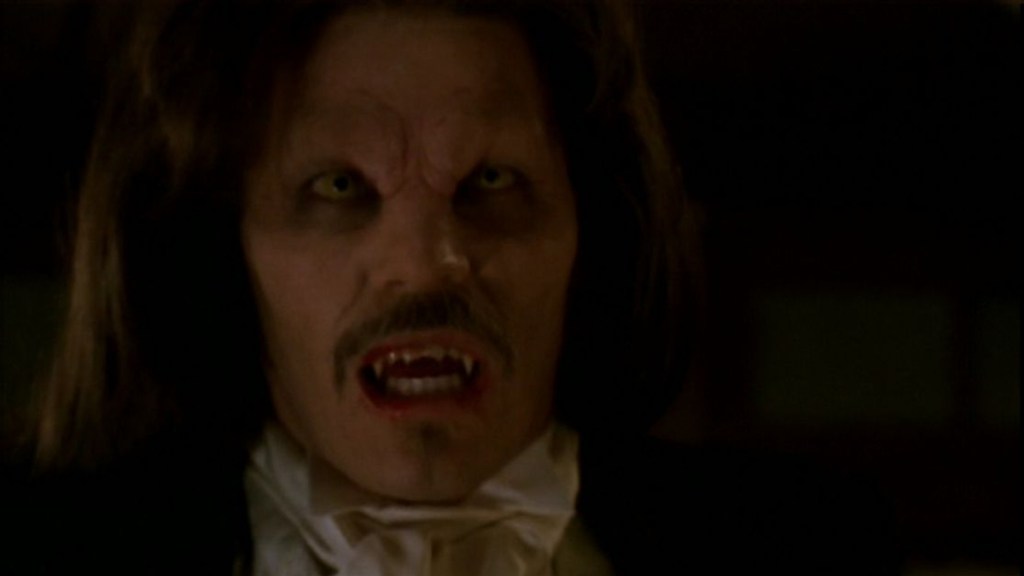
“Amends” – in which a soul-restored Angel is tormented by visions of his past victims until he attempts suicide but gets saved by the weather – looks great on paper. It’s an Angel and Buffy episode, it’s written and directed by the showrunner (once considered cause for celebration), it introduces new villain The First years before it became the series finale Big Bad… All signs point towards having another Becoming Part II (i.e. the best Buffy ep ever) on our hands.
Add in the fact that “Amends” is the show’s only bonafide Christmas episode, and I should be rewatching this one at least once a year. And yet…
It’s the hair. And the flashback Irish accents. And the complete absence of jokes. (If I wanted to watch dour Buffy without gags, I’ve got Twilight thank you very much.) And the awful climactic scene where David Boreanaz and the usually excellent Sarah Michelle-Gellar bend themselves double weep-talking their romantic anguish with all the nuance of, well, this script. Skip. Skip. Skip. (And apparently it’s not just me who finds Buffy’s bangs baffling, there’s a whole Reddit thread devoted to it.) – Louisa Mellor
Doctor Who series two, episode 13, “Doomsday”
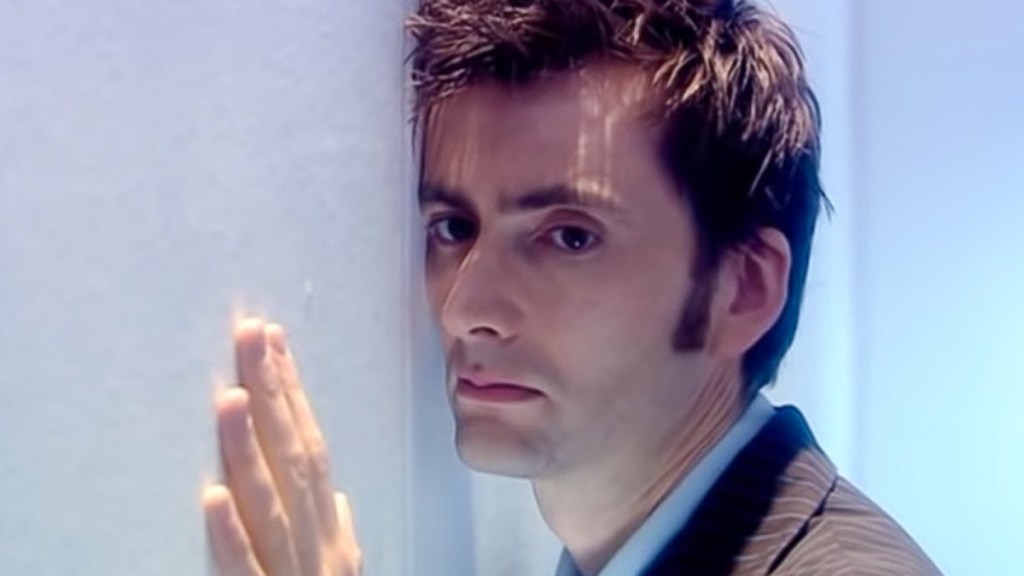
A little cathartic heartbreak in a TV show never hurt anyone, but I draw the line at having my heart smashed to smithereens, and “Doomsday” is very definite smithereen territory. Experiencing this Doctor Who episode once was enough for me, so much so that I’ve genuinely never watched it since it first aired in 2006, and so have only vague recollections of what happens outside of Billie Piper’s departure as companion Rose.
I remember that there was a war on Earth between the Daleks and the Cybermen, and to stop them, the Doctor decides to reopen the Void – the empty space between parallel universes where they’d been hiding – to pull them back inside it. In among this action is a whole heap of heartbreak, but by far the worst is Rose’s goodbye.
Very few companions get a particularly happy ending, but when Rose is accidentally dragged into the Void (being saved at the last second by parallel-world Pete transporting her to his universe) she is ripped away from her beloved Doctor without any closure or fond farewell. They’re just left looking like the two saddest people in their respective universes, pressing against the same wall, powerless to make things right.
Yes, The Doctor then “burns up a sun just to say goodbye” (wahh!) by briefly projecting a hologram of himself into the parallel world where Rose is waiting for him at Bad Wolf Bay, but this just makes everything a million times worse somehow. Because The Doctor and Rose love each other, but they’ve never said it. And now they can’t even hug goodbye. Rose’s final declaration of love in between heartrending sobs is awful enough, but The Doctor runs out of time to say it back. I mean, there’s literally no upside. No hope. Not even a whiff of a silver lining. Why would you want to watch this again? Why would you do it to yourself? WHY? I’m sending Russell T Davies my therapy bill. – Laura Vickers-Green
Lost season three, episode 14, “Exposé”
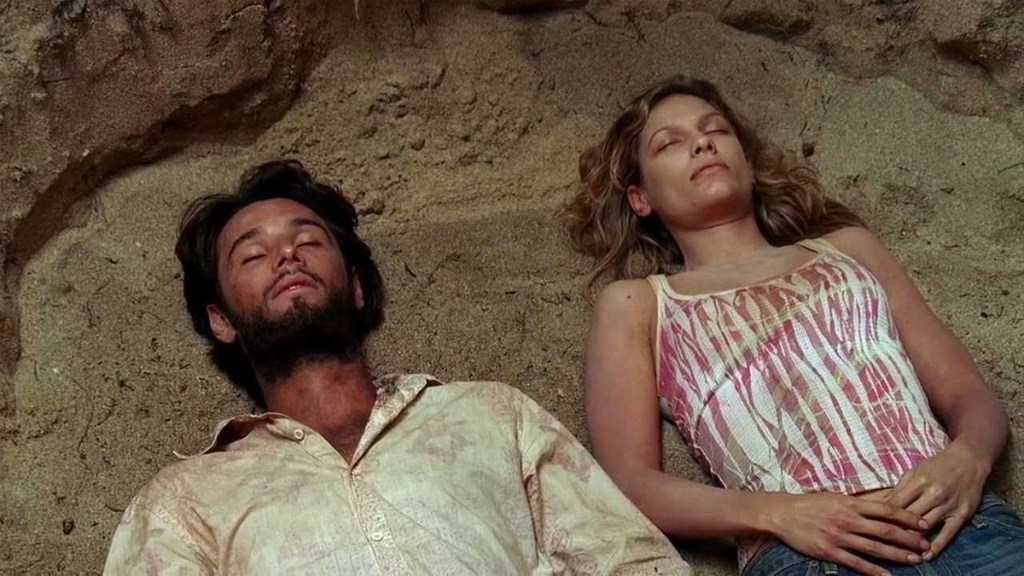
One often overlooked aspect of Lost is that its main characters were not the only folks marooned on that Island. And no, we’re not talking about the mysterious “Others” or the DHARMA Initiative but rather the “other” survivors of the Oceanic Airlines Flight 815 crash. While the show follows only its enigmatic lead characters, in reality there were dozens of extra nameless schmoes just trying to get by while Jack, Kate, Sawyer, Locke, and company delved into the many mysteries of the Island.
In the early years of the show, fans would often claim that they’d like to see some more from the unremarkable “red shirts” on the Island. So Lost’s writing staff obliged them with season three, episode 14 “Exposé” and it immediately became apparent that this was a very dumb idea.
“Exposé” tells the story of background characters Nikki (Kiele Sanchez) and Paulo (Rodrigo Santoro) as they like…steal some diamonds or something? “Exposé” is so pointless and discursive that it feels like a punishment to fans who had the audacity to ask for more. And honestly, fans deserved it. Lost was great enough without needing to know the intimate details of the non-main character nobodies’ lives. – Alec Bojalad
New Girl, season six, episode two, “Hubbedy Bubby”
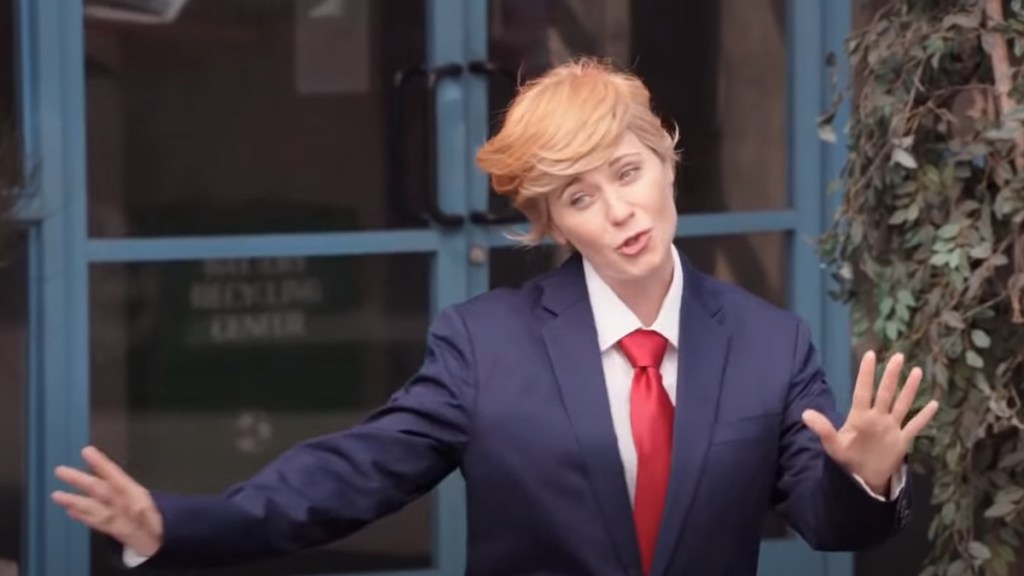
A good sitcom rewatch should transport you to a cosy place where you can forget the real world and spend time with your favorite chums/fictional characters. Of course there will be some mild peril but in twenty two minutes time everything will be absolutely fine.
New Girl episode “Hubbedy Bubby” first aired in September 2016 and made the cardinal sin of being too of its time. In the episode Jess and Cece go campaigning for Hillary Clinton and try to get a sorority house to register to vote – plot twist, the sorority sisters all love Ivanka Trump.
Although very well intentioned at the time (harnessing the power of prime time TV to encourage people to register to vote), the jolt back to 2016 and all of the terrifying stuff that has happened since does not fit in with a comfortable time you want hanging out with your New Girl pals in Apartment 4D. We all know what/who happened next and this episode needs a big old skip (especially when the next episode is the excellent “Single and Sufficient” featuring New Girl MVP Robby). – Elizabeth Donoghue
Parks and Recreation, season one, episode four, “Boys’ Club”
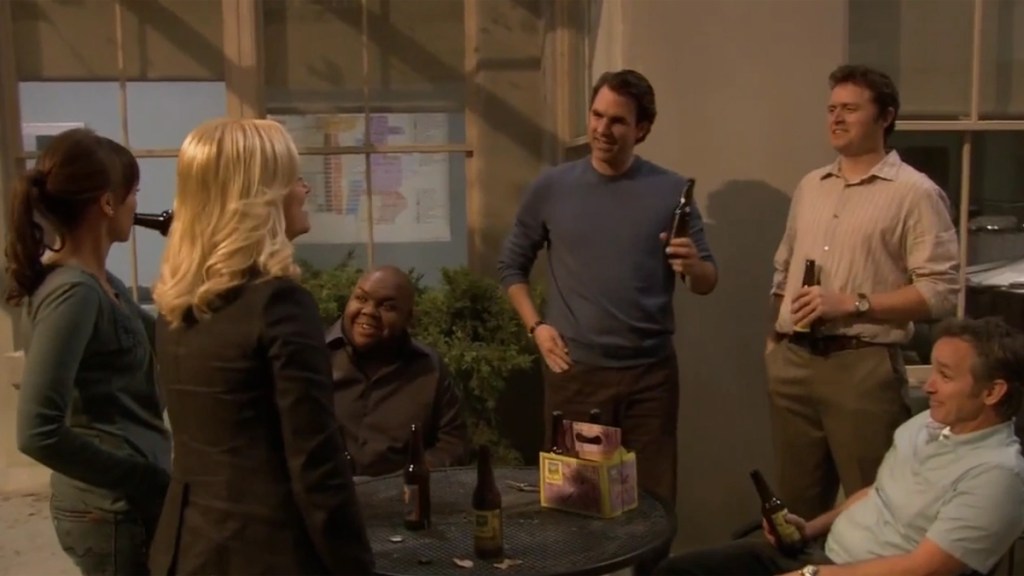
Parks and Recreation will forever be one of my favorite comfort watches, but I would be lying if I said I watched the show all the way through every time. Truthfully, I usually skip season one entirely (smart, wait for Mark to leave, then dig in – ed), but on the rare occasion that I do return to the earliest episodes, I still refuse to rewatch the season one episode “Boys’ Club.”
The cringe factor in “Boys’ Club” is so high that it’s hard to force myself to watch. It stands out as the worst episode of the bunch because of how out-of-character Leslie Knope (Amy Poehler) feels in this episode once you’ve seen the series all the way through.
In this episode, Leslie is so obsessed with gaining the approval of the men that work with her in City Hall that she breaks several rules in order to get them to like her and include her in their after-work hangouts. Season two episode “Hunting Trip” which similarly deals with Leslie taking action after feeling left out by her male co-workers, handles this premise so much better by framing Leslie as someone fighting for equality for herself and the other women in the office rather than as someone who is desperate to be accepted and liked. If the goal of “Boys’ Club” was to showcase the insecurities that Leslie has working in a male-dominated field, “Hunting Trip” and many other episodes throughout the series prove that there was a much better way of doing so that doesn’t make Leslie look like a “pick-me” girl.
But it isn’t Leslie’s insecurities that make “Boys’ Club” such a hard episode to rewatch. It’s the fact that Leslie Knope is so well-known for sticking up for herself and others against the patriarchal norms of Pawnee politics, and all this episode does is show her bending over backwards to be included in them, not to prove a point as with “Hunting Trip,” but so they’ll accept her competence. Brynna Arens
Star Trek: The Next Generation season seven, episode seven, “Dark Page”
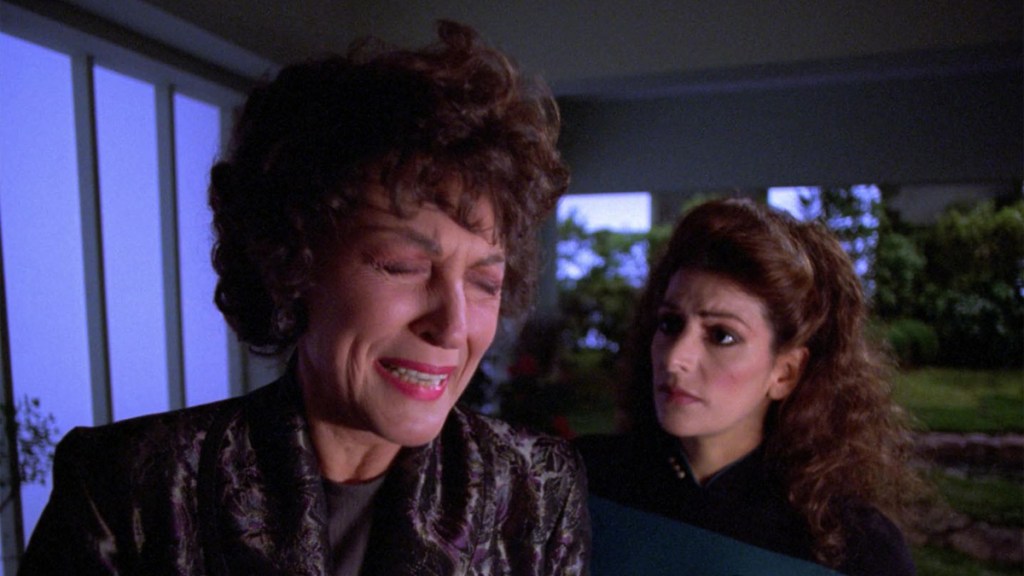
It’s not a bad innings for a TV series to go 159 episodes before delivering one that even I will skip on rewatch. As someone who likes to be really thorough about things, it brings me a little physical pain to pass over “Dark Page”, the seventh episode of Star Trek: The Next Generation season seven, when it comes along.
It’s not that the installment is a real stinker. I honestly have more time for the stinkers than I do the classic episodes when I’m rewatching Next Gen. Their messiness can be quite fascinating! Some of the most maligned episodes of the second season, for example, are worth a revisit for their rushed, standalone ideas that still have glimmers of genius about them. But ‘Dark Page’ just offers a humdrum mystery that is even duller upon rewatch.
In theory, the episode should work. The overbearing-but-cheerful Lwaxana Troi visits the Enterprise, but falls into a coma when she is triggered by seeing a little girl fall into a pool of water in the arboretum. Deanna Troi must forge a telepathic link with her comatose mother to figure out what the problem is. It turns out that Deanna once had a sister who had a fatal accident, and seeing the little girl slip into the water brought back the grief and memory of her death, overwhelming Lwaxana and forcing her to shut down
It’s a sci-fi concept telling a relatable human story, something that Star Trek has always excelled at: the loss of a child, and the emotional burden a parent must carry and compartmentalize after the event in order to survive. But when the mystery of Lwaxana’s odd behavior is solved, it doesn’t feel earned or organic, because it sort of comes out of nowhere, and try as she might, Majel Barrett just can’t sell decades of trauma in the reveal. The whole thing is entirely unconvincing and quickly swept under the rug. After one attempt at rewatching it, that’s where I swept “Dark Page”, too. – Kirsten Howard
The Office season six, episode 12, “Scott’s Tots”
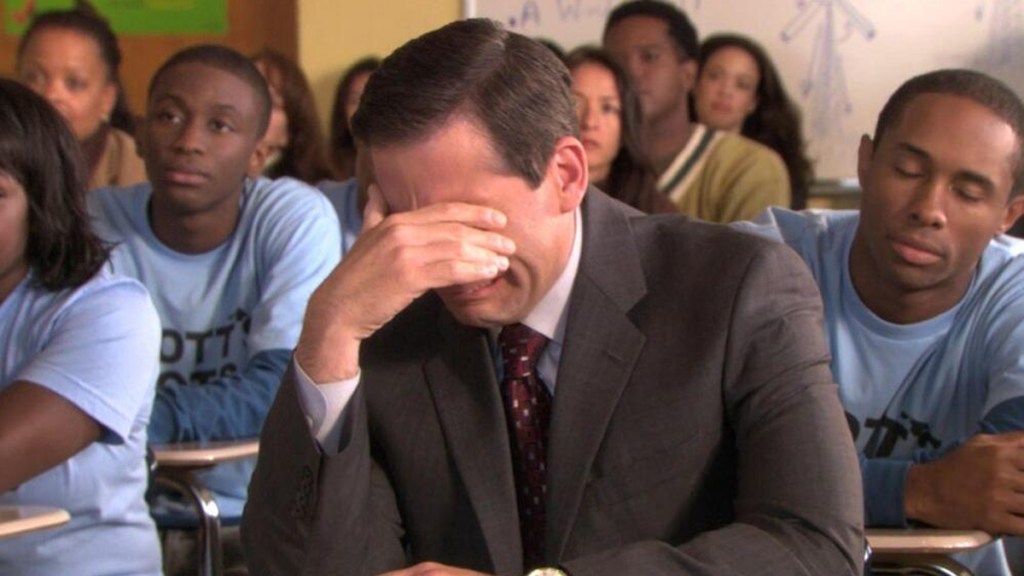
Michael Scott, regional manager of Dunder Mifflin Scranton, quite often finds himself the idiot in way, way over his head. But forget those embarrassing strategy meetings with David Wallace, his mission to make the perfect TV commercial, when he went rogue and started his own paper company, the time he tried to come up with a plan to save Dunder Mifflin from bankruptcy on the fly, or when he planned to fake his own suicide to teach the warehouse guys a lesson. All those moments of hubris and sheer ignorance pale in comparison to “Scott’s Tots,” arguably the most cringeworthy episode of a sitcom ever produced. Fourteen years after it first aired, I still can’t stomach it. As soon as I get a whiff of the cold open — Andy’s baby talk intervention — my finger is on the skip button.
The Office simply went too far with this episode about underprivileged high school students who have tied their futures to the most delusional benefactor on television. We learn early in “Scott’s Tots” that Michael has made a terrible mistake: 10 years prior, he pledged to pay for these students college tuitions as long as they graduate high school. The only problem that Michael doesn’t have anywhere near that kind of money a decade later. He explains to an outraged Pam that he really thought he’d be a multi-millionaire by now. But rich or not, the time has come to pay up.
Michael is invited back to the school, where all of his tots are now all grown up, and ready to celebrate him. Performing a song and dance for their hero, it’s clear that these kids, their parents, and their teachers have spent years worshipping Michael for his generosity, making it all the more painful when the inevitable other shoe finally drops. He can’t pay for their college educations, but at least he bought them all laptop batteries? Nothing can possibly prepare you for the look on these kids’ faces. Pass. – John Saavedra
The Twilight Zone season four, episode 18, “The Bard”
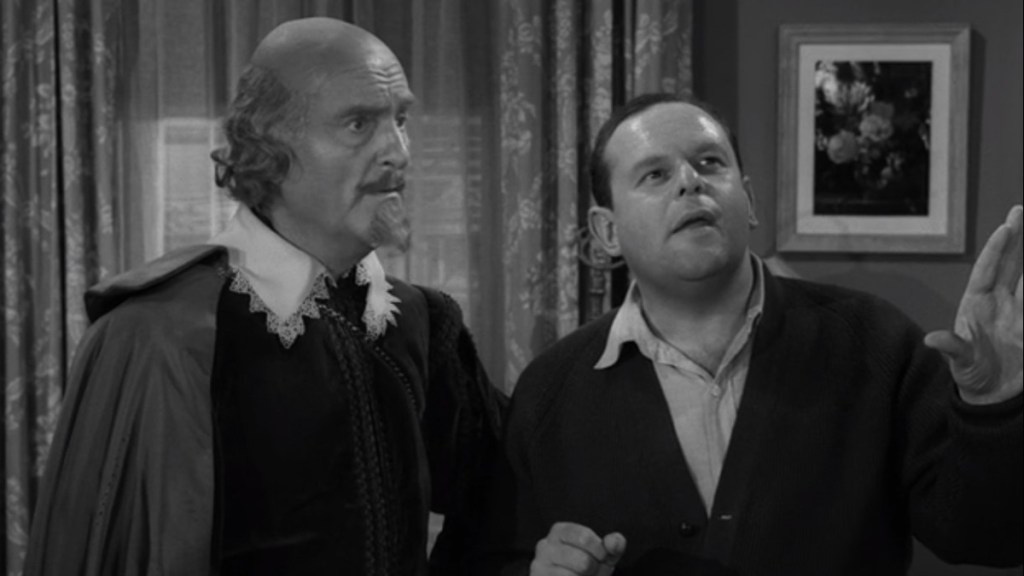
The Twilight Zone is easily one of my favorite TV shows ever, but I can’t deny that the series’ original run is filled with truly terrible episodes. Over many, many rewatches, though, I’ve found something to love in many of those episodes.
“The Mighty Casey”? A somewhat charming sports story that had to endure a nightmare last-minute casting change. “The Bewitchin’ Pool,” “Black Leather Jackets,” and “Come Wander With Me”? Interesting experiments that showcased the series’ willingness to explore new concepts even in its final days. ”Mr. Dingle, the Strong”? Burgess Meredith and some charmingly cheesy examples of 1961 TV production values. They may be lesser efforts, but I can easily fit them into one of my many Twilight Zone mini-marathons.
Then there is “The Bard.” This episode tells the story of a struggling writer who brings William Shakespeare back to life so he can steal the playwright’s latest work. What was meant to be an examination of Rod Serling’s constant battles with the network (and its greedy advertisers) is instead a remarkably toothless tale that lets its awful protagonist off the hook. Much like how David Simon sometimes struggled to incorporate his newspaper experience into The Wire’s fifth season, you get the sense that Serling may have been too close to this subject matter (and too frustrated by it) to examine it in the ways he so excellently examined so many other social and societal issues. Like many of The Twilight Zone’s comedy episodes, it’s also painfully unfunny.
However, the biggest reason to skip this episode is its 50-minute runtime. While some of The Twilight Zone‘s hour-long season four episodes deserve way more love than they get (“On Thursday We Leave for Home” and “Printer’s Devil”), the fact of the matter is that doubling the length of an already bad episode makes it twice as bad. I respect the idea behind this episode, and there is certainly something entertaining about watching a very young Burt Reynolds impersonate Marlon Brando (those two were locked in one of Hollywood’s longest and most bitter feuds). Unfortunately, few things are more unwatchable than overly-long, unfunny comedies. – Matthew Byrd
Twin Peaks season two, “Episode 21/Double Play”
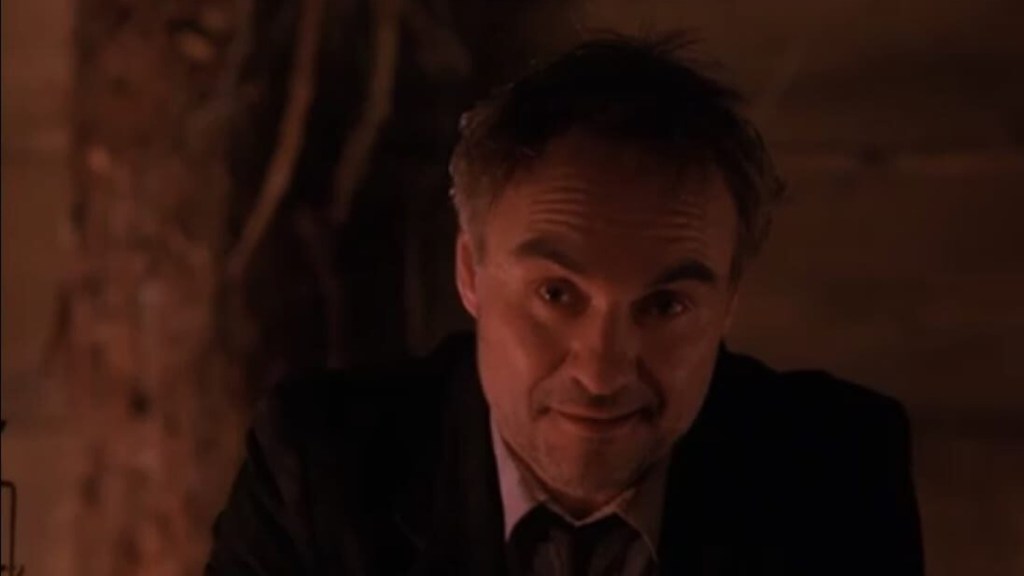
There’s a lot I can defend about the much-maligned second season of Twin Peaks. Super-Nadine makes me laugh, the cast sells the otherwise-awful Ben Horne Civil War storyline, and I legitimately love Dick Tremayne. But I cannot defend James Hurley’s (James Marshall) noir plot nor Windom Earle’s (Kenneth Welsh) twisted games.
These two continue across several stories in the second season, but they’re most pronounced in “Episode 21”. Written by Scott Frost (brother of Peaks co-creator Mark), directed by German filmmaker Uli Edel (who also made the Willem Dafoe/Madonna erotic thriller Body of Evidence), Episode 21 finds showrunners Harley Peyton and Robert Engels flailing to recreate the alchemy that David Lynch and Mark Frost brought to the first half of the series.
“Episode 21” features a major development of James’s noir plot, when femme fatale Evelyn Marsh (Annette McCarthy) urges him to kill her husband Jeffery (John Apicella). Creators Mark Frost and David Lynch regularly integrated several genres into the series, moving from soap opera to horror to romance without warning. In theory, the noir plot could work, but Marshall struggled to portray a dumb teen trying to be a sensitive biker. He’s completely lost as a conflicted noir hero, staring in confusion at Evelyn when he’s trying to convey moral discord.
Worse, however, is the way the episode advances the Windom Earle plot. We’re constantly told that Earle is Cooper’s evil counterpart, an arch-enemy from his past. However, not only does Earle lack any of the eccentricities that make Cooper such a wonderful character, but Peyton and Engels can only express his evil genius in the most obvious manner, as in the chess motif used here.
These two plotlines started before and continue on past “Episode 21”, and the episode does have some bright points, like Pete Martell playing chess. But for anyone struggling to get through the worst parts of Twin Peaks before the amazing season two finale, skipping this one provides some relief. – Joe George
